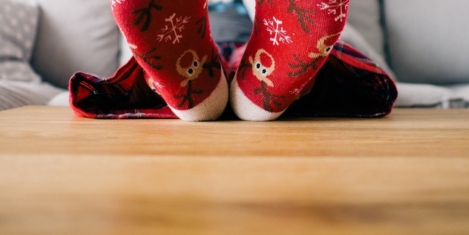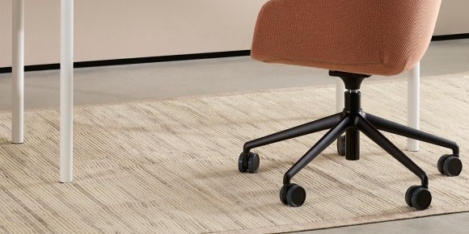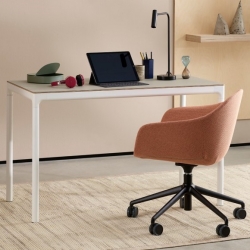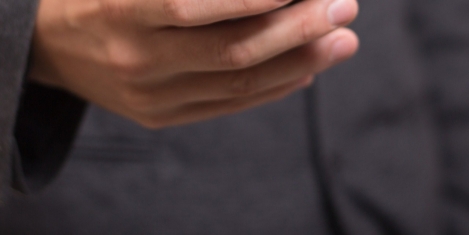To provide the best experiences, we use technologies like cookies to store and/or access device information. Consenting to these technologies will allow us to process data such as browsing behaviour or unique IDs on this site. Not consenting or withdrawing consent, may adversely affect certain features and functions.
The technical storage or access is strictly necessary for the legitimate purpose of enabling the use of a specific service explicitly requested by the subscriber or user, or for the sole purpose of carrying out the transmission of a communication over an electronic communications network.
The technical storage or access is necessary for the legitimate purpose of storing preferences that are not requested by the subscriber or user.
The technical storage or access that is used exclusively for statistical purposes.
The technical storage or access that is used exclusively for anonymous statistical purposes. Without a subpoena, voluntary compliance on the part of your Internet Service Provider, or additional records from a third party, information stored or retrieved for this purpose alone cannot usually be used to identify you.
The technical storage or access is required to create user profiles to send advertising, or to track the user on a website or across several websites for similar marketing purposes.
 Poly has released research findings that claims to expose our ‘hybrid working secrets’. The survey, which was made up of 4,000 hybrid workers from the UK, France, and Germany, shines a light into new working behaviours and habits on and off camera. The findings suggest people may be suffering from ‘Home Comfort Syndrome’ as the lines between home and work blur. (more…)
Poly has released research findings that claims to expose our ‘hybrid working secrets’. The survey, which was made up of 4,000 hybrid workers from the UK, France, and Germany, shines a light into new working behaviours and habits on and off camera. The findings suggest people may be suffering from ‘Home Comfort Syndrome’ as the lines between home and work blur. (more…)








 The number of supported adults with learning disabilities in paid employment fell by 87 percent in some areas during the pandemic, according to the latest PHE data. In some local authorities in England, just 0.4 percent of people with learning disabilities are in paid employment.
The number of supported adults with learning disabilities in paid employment fell by 87 percent in some areas during the pandemic, according to the latest PHE data. In some local authorities in England, just 0.4 percent of people with learning disabilities are in paid employment. 
 The company of your work friends can make a long day fly by, with many of us finding long lasting friendships in the workplace. To find out more about how much people love their colleagues,
The company of your work friends can make a long day fly by, with many of us finding long lasting friendships in the workplace. To find out more about how much people love their colleagues, 
 A new study, commissioned by
A new study, commissioned by 
 We’ve all learnt a great deal about working from home over the past eighteen months. We’ve seen how for some, it can be incredibly beneficial to employees, enabling them to better balance their work and personal lives and can also benefit the company, enabling business as usual during the Covid-19 pandemic, even improving efficiency. It’s also prompted some important conversations about mental health that simply hadn’t been had, normalising the challenges that we all face, especially during lockdowns.
We’ve all learnt a great deal about working from home over the past eighteen months. We’ve seen how for some, it can be incredibly beneficial to employees, enabling them to better balance their work and personal lives and can also benefit the company, enabling business as usual during the Covid-19 pandemic, even improving efficiency. It’s also prompted some important conversations about mental health that simply hadn’t been had, normalising the challenges that we all face, especially during lockdowns. 
 An overtime “epidemic” driven by the rise in home working during the pandemic must be curtailed with new right to disconnect laws, according to a
An overtime “epidemic” driven by the rise in home working during the pandemic must be curtailed with new right to disconnect laws, according to a 
 After more than a year of remote working, the majority of UK workers are well-versed in office-free employment. We’ve had plenty of time to think about how the experience has affected our working habits.
After more than a year of remote working, the majority of UK workers are well-versed in office-free employment. We’ve had plenty of time to think about how the experience has affected our working habits. 


 New research commissioned by
New research commissioned by 
 The
The 
 According to a new survey from
According to a new survey from 








September 21, 2021
The commercial property market is changing rapidly, and for the better
by Tom Jansons • Comment, Property